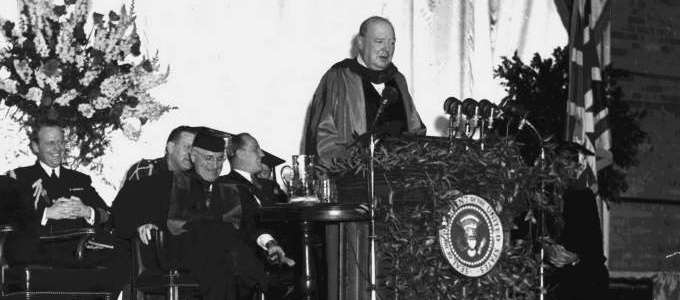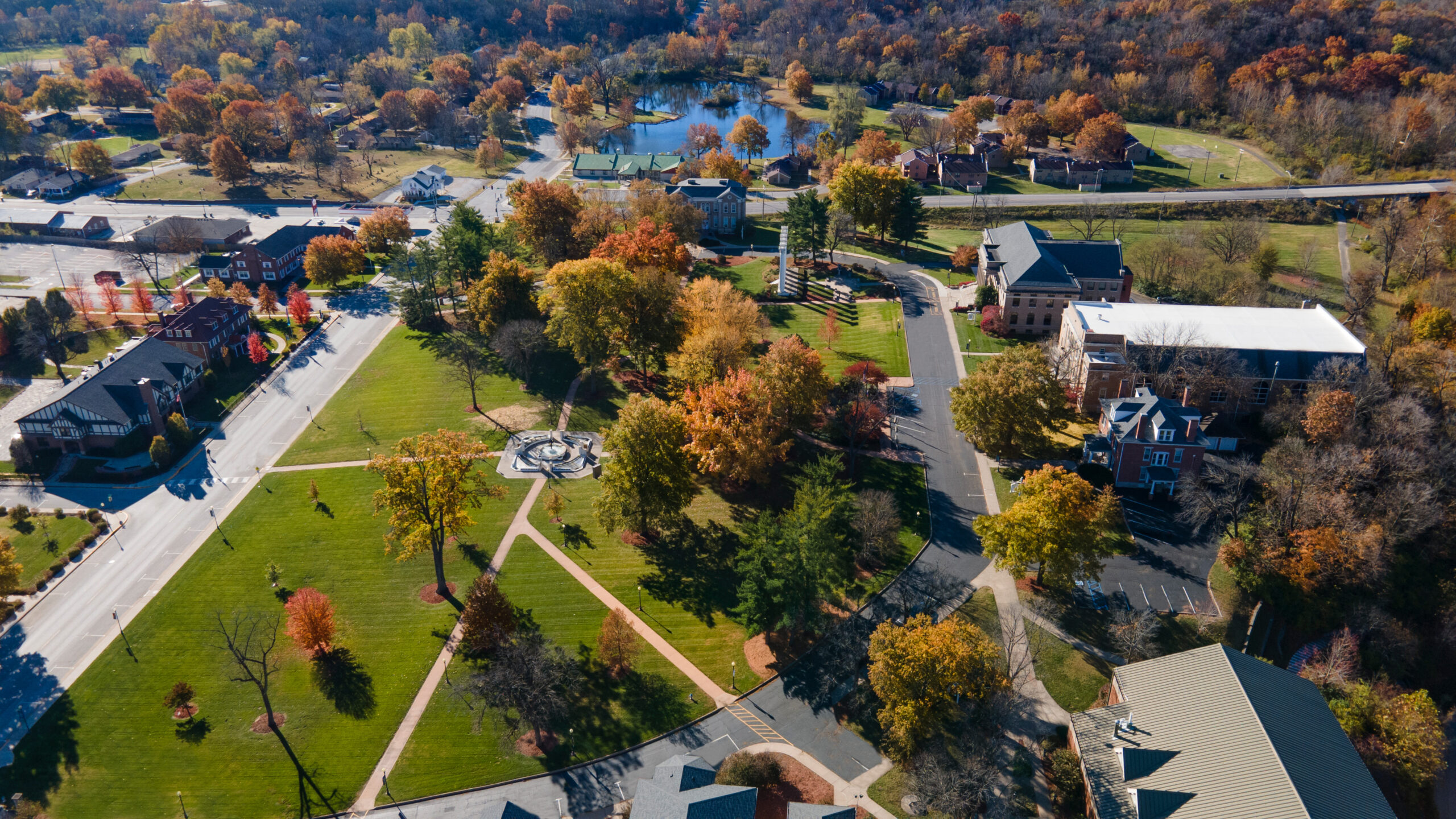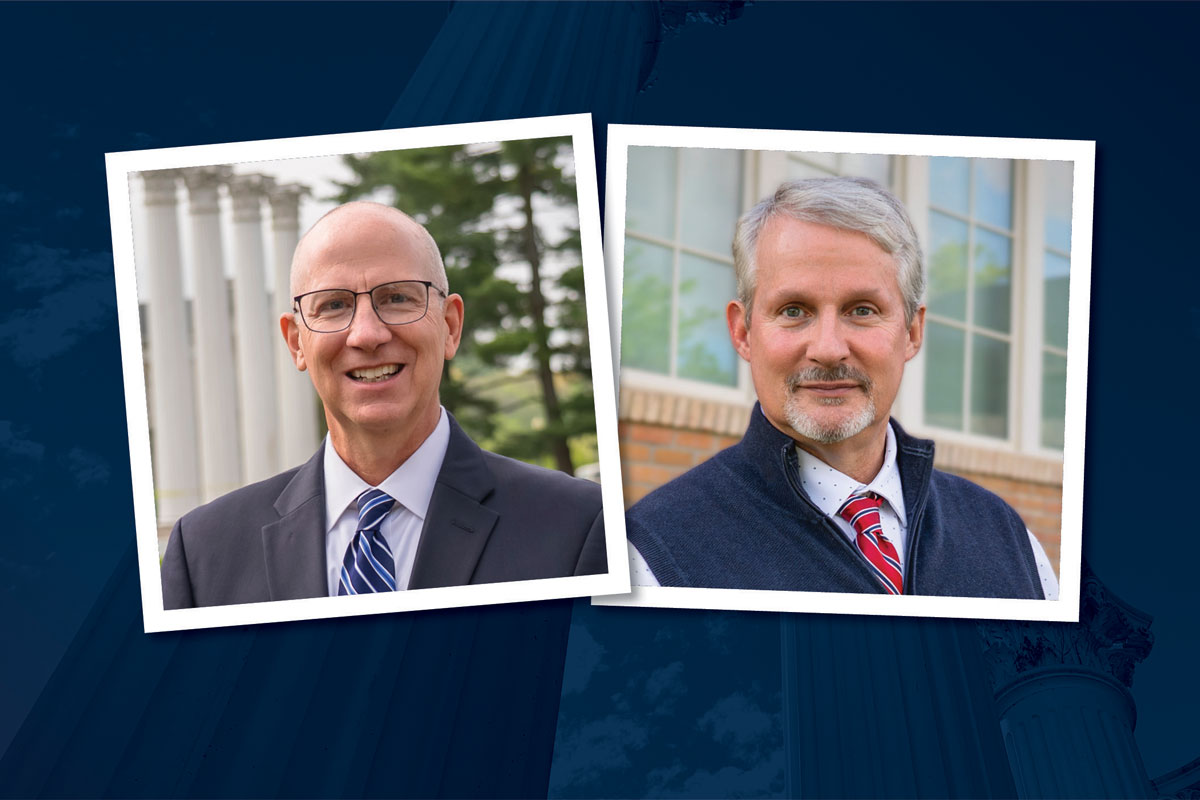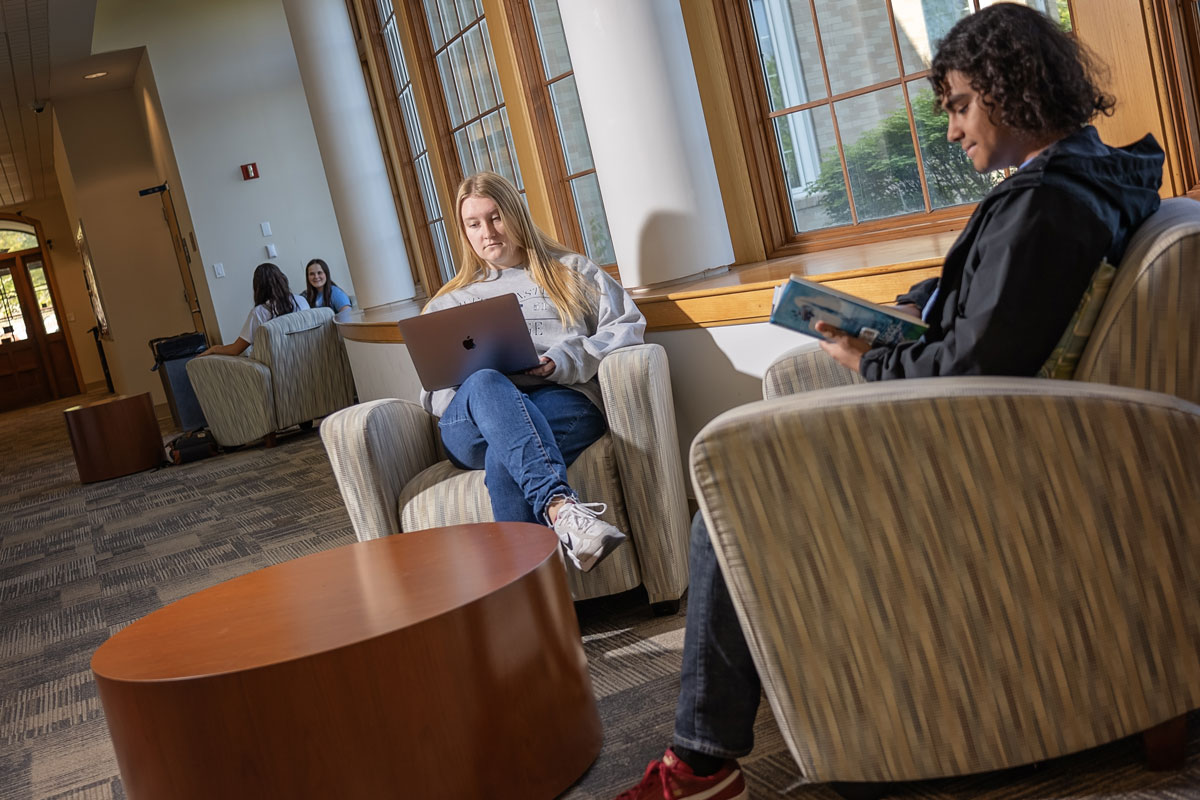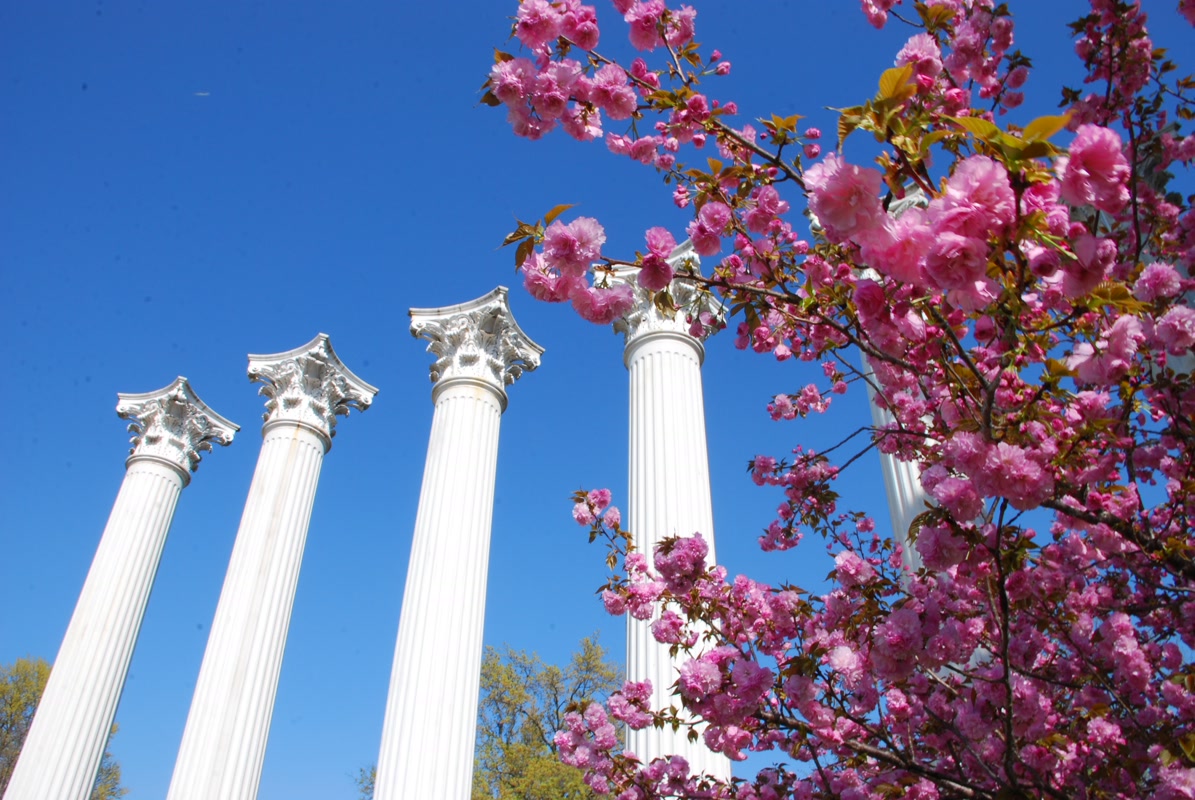Welcome to the Kemper Lecture, made by Dr. Benjamin Akande, President of Westminster College. The Church of St. Mary the Virgin, Aldermanbury, April 10, 2016.
Good afternoon, members of the Westminster community, friends of Churchill. I welcome you to the thirty-first Enid and R. Crosby Kemper Lecture, one of the many rich traditions at Westminster College. We are grateful to the Crosby Kemper Foundation of Kansas City for providing the grant that makes this lecture series possible. I regret that R. Crosby Kemper III could not be with us today to participate in this storied tradition that is so near and dear to his heart. I want to thank Dr. Jim Williams, executive director of the National Churchill Museum and Sandra L. And Monroe E. Trout Professor of Churchill Studies. In addition, I extend my gratitude to Meda Young for organizing an outstanding and successful Churchill Weekend. And for those of you who did not have the opportunity to attend the previous events this weekend, yesterday’s thought-provoking lecture by former world chess champion, human rights activist, and Russian presidential candidate Garry Kasparov was engaging.
Every year at the Kemper Lecture, we invite a prominent British historian, a leading Churchill scholar to come to where Churchill stood here at Westminster College to provide perspective on the life of Sir Winston Churchill. We have welcomed luminaries – Churchill’s daughter, Lady Mary Soames, Churchill’s official biographer, Sir Martin Gilbert among many others have graced this stage in the past. And this year is no exception. Dr. Klaus Larres, a Churchillian scholar of high repute who has written many essays and published numerous articles, a world recognized historian focused on the subject of the Cold War is our Kemper lecturer for this year.
His book on Churchill’s Cold War is a fascinating read that offers fresh insight and perspective on this historic period. On behalf of Westminster College, I welcome you to our campus.
I’d like to begin by asking: why are we all here today? What is it about Sir Winston Churchill that continues to tweak the interest and the admiration of so many people the world over?
For some, it is academic curiosity. Like archaeologists digging for artifacts, they are in search for roots of our present world culture in the historic wartime and postwar decisions of legendary political figures like Winston Churchill.
Although he was the son of an American mother and an English aristocrat, Churchill did not have an easy life. He was a key player in the major British naval loss in the great war (Gallipoli), lost five major British elections, almost met his demise in a taxi accident in New York City, endured with his wife the death of his young daughter, and after the allied victory in world war ii, he was rewarded with a resounding eviction from the seat of British power, #10 Downing Street.
My friends, Churchill did not allow these disappointments, defeats and difficulties to define him; he rose above his many failings and by doing so inspired then and continues to teach us now how to face our own challenges head-on.
And never was this intestinal fortitude more evident than in the late 1930s, when Churchill stood in the house of commons and implored the British people – with a solemnity and splendor that only Winston could implore – to resist Adolf Hitler and the Nazis. Winston Churchill’s singular resolve during a time when appeasement was the prevailing policy of the day remains a defining moment in world history. In June of 1940, as the battle of France raged on, prime minister Churchill prepared the British for what was approaching just around the bend.
You see, Churchill believed that the British could prevail, would prevail, and ultimately stop Hitler’s evil march across Europe. And during that crucial stretch of history from 1939 until 1941, the British did just that. They did it alone. And they did it all because of Churchill, the gentleman we have come here to honor today.
So many leaders are defined by their failures, not by their successes, but for our Churchill, failure was a badge of honor. He used it as real-time feedback. The lesson here as America is in the midst of a raucous presidential election campaign, what America needs now more than ever is are leaders who in good times and bad times will speak truth from a position of knowledge and courage—two twin attributes that are indispensable to leading. Winston Churchill stood his ground against two of the world’s most formidable foes—status quo and complacency and overcame insurmountable odds to ensure the survival and sovereignty of Britain and the world at large.
I thank you for honoring us with your presence this afternoon. And may we all leave this beautiful church today with a great appreciation of what leadership exemplified by one Winston Churchill.
This is the editorial account for Westminster College news team. Please feel free to get in touch if you have any questions or comments.

